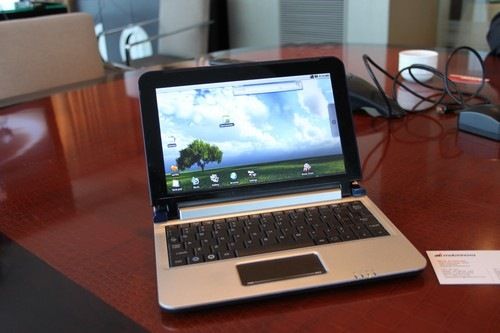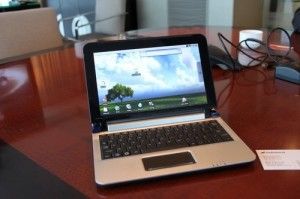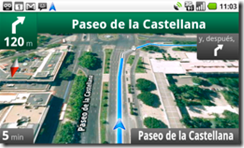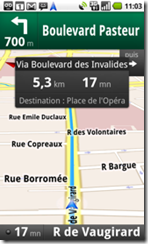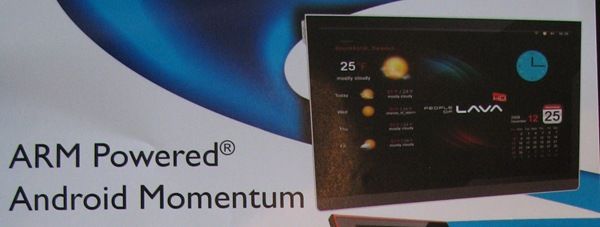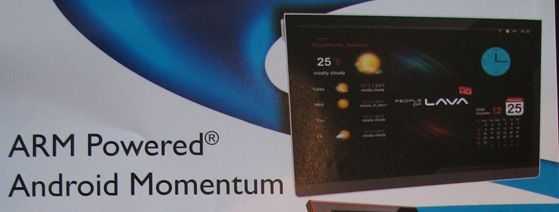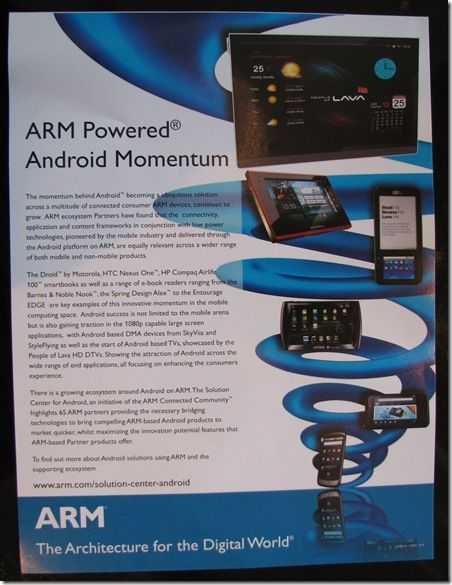It’s a question I’ve been looking for an answer to for a long time. There are plenty of tablet manufacturers that are in the dark too. Why doesn’t Google allow Android Marketplace on non-phone devices?
It’s crippled the Archos 5, the Camangi Webstation, the Compaq Airlife 100 and many other devices. There are also OEMs out there that I speak too that can’t even open a dialog with Google on the subject.
It was fairly obvious that they wanted to protect and preserve the quality of the Android experience but it has taken until now for official words to reach the surface.
Google argues that the reason it doesn’t permit tablet vendors access to Android Market just yet is to prevent devices that fail comparability tests from actually fragmenting the platform.
Google, in this case, is none-other than Mr Android, Andy Rubin who in Michael Gartenbergs good article over at Engadget appears to argue that Android is not fragmenting, it’s just a fast developing environment that leaves older products in its wake and it’s up to everyone else to keep up. To me, it sounds like BS because 1 you’ve got a native code development kit that could break apps left right and center. 2 There are lamps, flashlights and screen sizes that have already broken compatibility. I have a Sony Ericsson X10-specific app that toggles the flashlight. 3 There are switches in the marketplace that try (and often fail) to prevent fragmentation and incompatibility reaching customers and 4 How can they say that when they’ve just introduced a huge element of fragmentation Google TV – a non-smartphone platform that uses a completely different set of silicon with a different instruction set. Fragmentation is already there.
As a customer, I find this ‘keep up’ message rather worrying although to be fair to Google, there aren’t any quotes from Andy Rubin to go on here and Gartenberg may have just spinned this message. To customers, fragmentation is real. Customers live in the wake of product development. Products may be released every six months but that doesn’t mean that all the old products are thrown away. Google needs to make sure it keeps up the pace of innovation but not so fast that the customer is left with a pocketful of six-month old products that are considered ‘old.’ Micheal Gartenberg picks up on this:
I’d argue perhaps Android isn’t fragmented, at least according to the classical definition, but that the practical result is the same. Devices going obsolete in months and new operating systems released on weekly cycles make it difficult for even Google’s best partners to keep pace. Worse, users care onfronted with a dizzying array of devices, many of which are out of sync from a software perspective at the time of purchase — causing some to delay purchases in fear of buyer’s remorse or purchase a competing platform.
Listen, I don’t mind fragmentation. I think it comes with the territory and I think it’s something dev’elopers will always have to consider. Sure, it would be nice to have one set of hardware but where would that leave us! Why doesn’t Andy Rubin just admit it it’s fragmented, that’s the way it will always be, it will get worse, deal with it. A non-fragmented Android is simply not possible any more.
Having got that out of the way, let us consider the marketplace for non-smartphone devices. Do Google consider tablets, MIDs, smart-books and related products to be a big market? With only one product out of hundreds actually having success and even then, only selling 1 million units you have to agree that it’s not exactly a proven market yet. These are niche categories right now and probably wouldn’t be big enough to support any large-scale business plan. The second consideration is, assuming Google do want to move forward with non-smartphone devices, how do they do it.
What devices are we talking about?
Tablets, navigation devices, ebook readers, slider handhelds, smart-books, cameras, gaming devices and a whole range of gadgets and gizmos that could benefit from a marketplace. [Sidenote: I’m looking forward to the day when a medium range digital camera is released with an ‘Nexus-One Back’ and access to all the hardware features. Can you imagine the applications that could be written!]
Solutions
There are three ways I see that Google could move forward. 1) Create multiple marketplaces. 2) Let the devices talk to marketplace so that incompatible apps can be removed from view 3) let the users provide feedback and the ability to remove down-graded apps from view and promote apps that are proven to work.
Of course, Google could also do nothing and let competitors like MeeGo and WebOS take up the strain. 3rd party Android marketplaces also have an opportunity.
Summary.
It looks like it will happen. Non-smartphone devices will get a real Marketplace. Obviously Google are considering it and when I see tweets from people like James Kendrick, the GigaOM employee that was given a Nexus One running Android 2.2 before the Google IO conference saying “Android is getting ready for a serious run into the tablet space. Mark my words. inch then I have to assume he knows somethin that we don’t and that there’s work going on right now.
Dell are working on the Looking Glass and Huawei on the Smakit S7. There’s even a Wifi-only Dell Mini 5 / Streak planned. These companies have experience with Google Android and they know the value of Marketplace. They also know what Google will require of them so I doubt they will be planning tablets without knowing that marketplace is going to happen for tablets soon. Look to the release dates of these products for clues about Marketplace for non-smartphone devices.
Fragmentation in Android IS happening and developers need to get used to it. Mr Rubin needs developers and will do everything he can to placate them in discussions about fragmentation but the truth is that it’s going to get harder to develop for Android in the future. Consumers, on the other hand, can look forward to some interesting developments soon. Computex, next week, should be an eye opener.
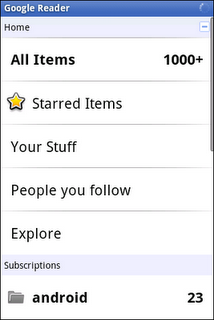 I’ve always been puzzled as to why there isn’t an official Google Reader app on Android. I mean, Android has built-in RSS functionality, but why would they keep that separate from their massively popular and wildly useful Google Reader? When it comes down to it, I need to have my RSS solution synced across all devices, not stuck on one device. Google Reader has been a solution to that issue, but until now there was never an official Google Reader app for Android.
I’ve always been puzzled as to why there isn’t an official Google Reader app on Android. I mean, Android has built-in RSS functionality, but why would they keep that separate from their massively popular and wildly useful Google Reader? When it comes down to it, I need to have my RSS solution synced across all devices, not stuck on one device. Google Reader has been a solution to that issue, but until now there was never an official Google Reader app for Android.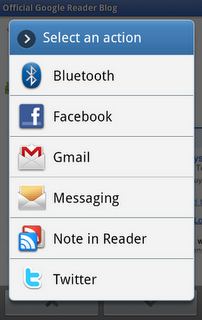 The Google Reader app will run on any Android device with Android 1.6 (Donut) or later, and includes many of the core functions that you can do with the desktop version that we’ve come to know and love. Most of your settings will sync between the two which is nice. Some of the features include:
The Google Reader app will run on any Android device with Android 1.6 (Donut) or later, and includes many of the core functions that you can do with the desktop version that we’ve come to know and love. Most of your settings will sync between the two which is nice. Some of the features include:


